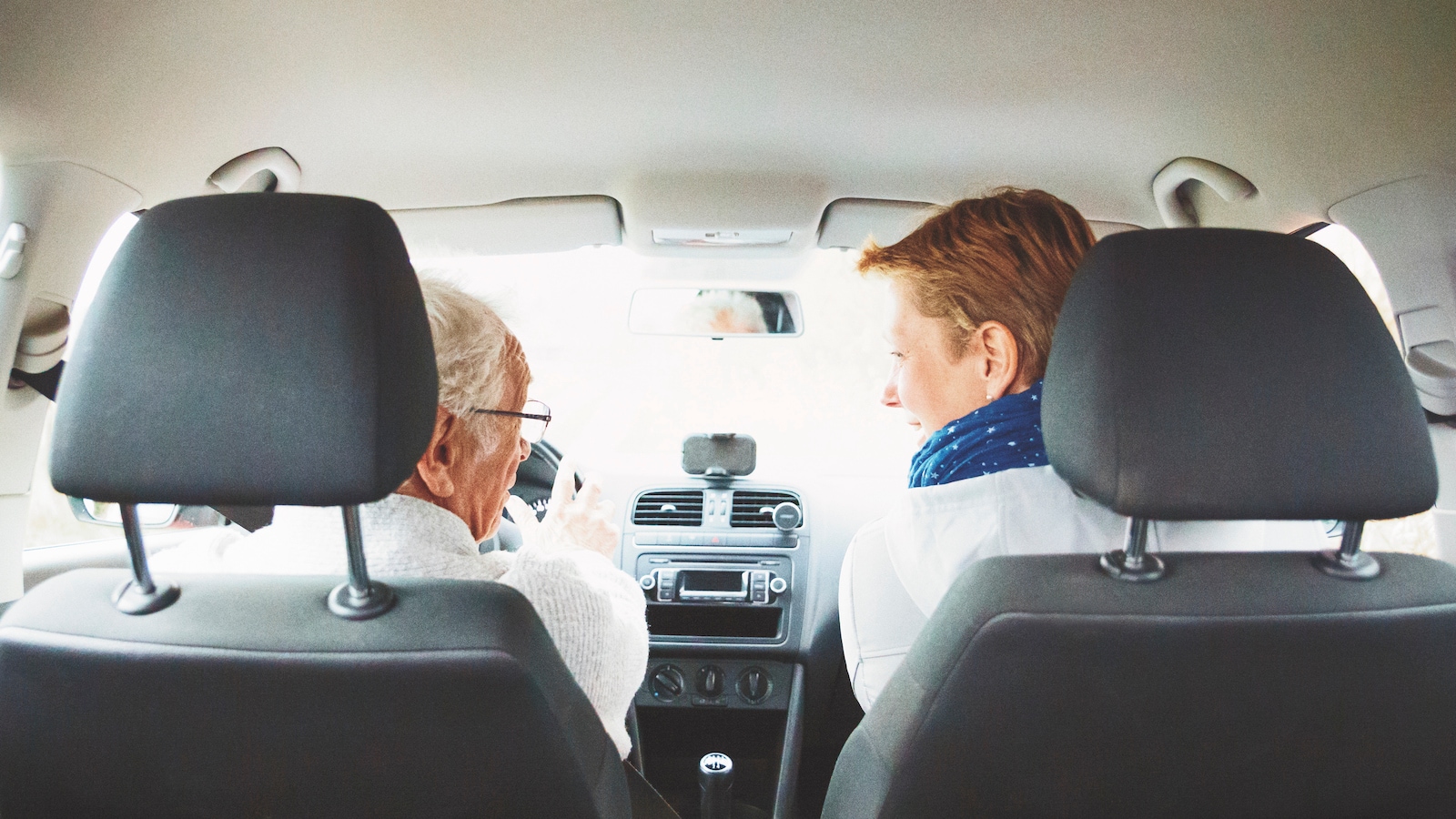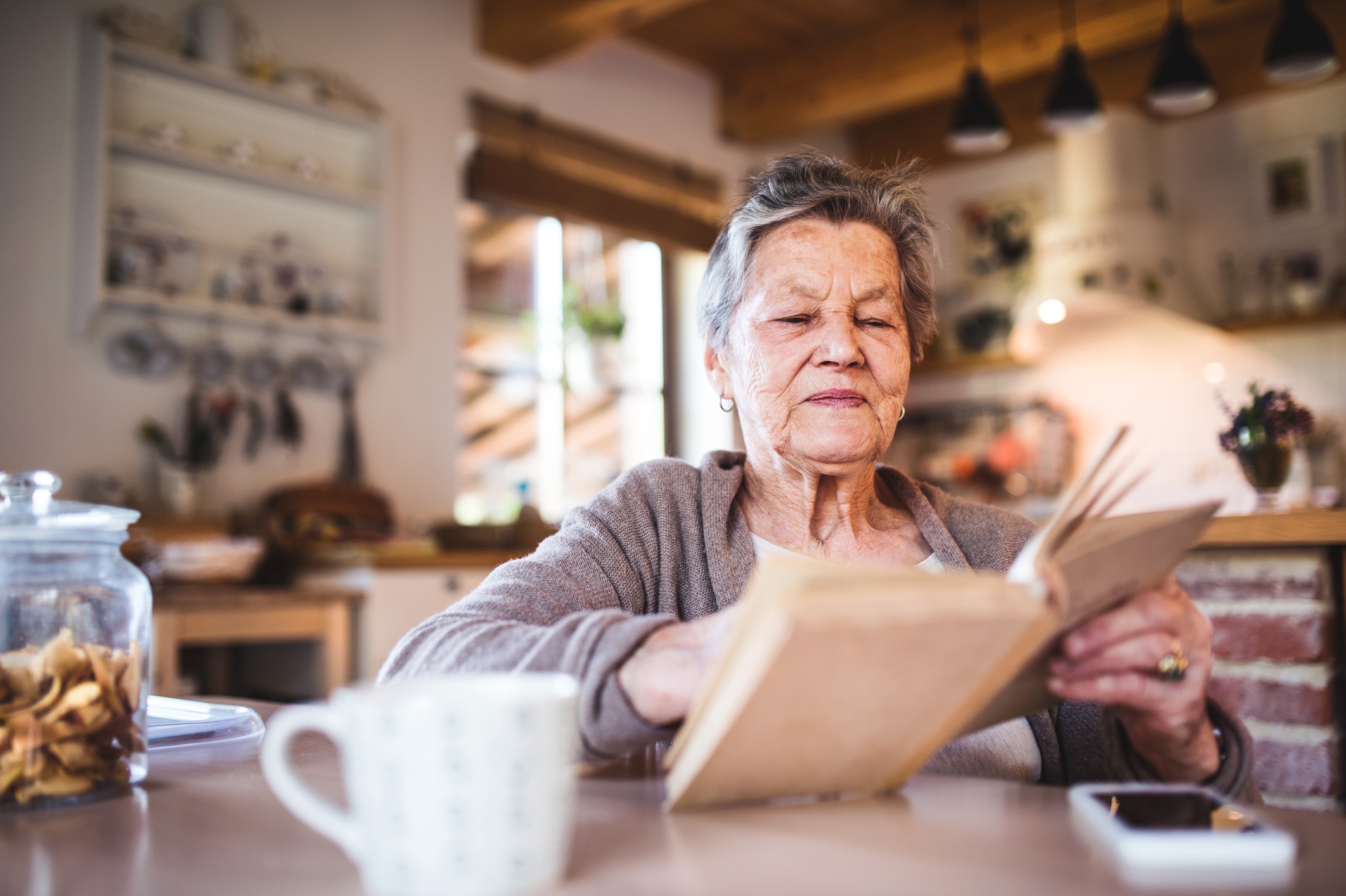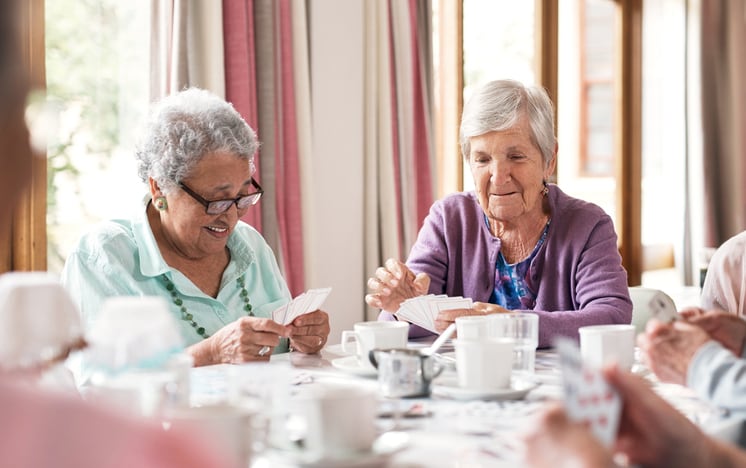In this article
As you or someone you love approaches the later years without a spouse or nearby family, you’re not alone — nearly 27% of Americans over 60 fall into this category. Known as solo agers, these individuals face a unique set of challenges. Planning early is crucial to ensure your home, finances, health and social community are set up for aging well.
“It is better for solo agers to plan ahead as much as possible, especially in case of dementia,” says Dr. Elena Portacolone, a professor of sociology at the University of California San Francisco Institute for Health & Aging. She also emphasizes that adult children living far away from aging parents should discuss and honor their preferences and priorities early on.
Ahead, Portacolone and other experts offer actionable advice on navigating the challenges of solo aging to ensure a safe, healthy and fulfilling future.
What is solo aging?
Solo aging refers to growing older and making decisions about the future independently. With more adults living alone, many are choosing to age in place, staying in their homes as they grow older.
“A recent study from AARP defines this group as adults 50-plus who are living alone, are not married or partnered in a long-term relationship and have no living children,” says Stephanie Childs, Manager of Consumer Insights, AARP Research. Similarly, the term elder orphans describes older adults who are:
- Socially or physically isolated.
- Unmarried or unpartnered (whether widowed, divorced or never married).
- Have no children or close family members available to serve as caregivers.
According to the U.S. Census Bureau’s 2023 Current Population Survey, 28% of older adults in the U.S. — or 16.2 million people — live alone, with this number increasing significantly with age. For example, 27% of women aged 65-74 live alone, while 42% of women aged 75 and older live alone.
The brutal irony, as author Sharona Hoffman points out in her book, “Aging with a Plan: How a Little Thought Today Can Vastly Improve Your Tomorrow,” is that many caregivers find themselves in this position — growing old alone and wondering who will care for them when the time comes.
Common concerns for solo agers — and how to handle them
Here are some of the most frequent concerns solo agers face, along with practical solutions to help you or your loved one stay safe, healthy, and independent.
1. Preventing loneliness
Loneliness is a significant health risk for older adults, especially solo agers. Loss of loved ones and limited social interactions can worsen feelings of isolation. Debi Moore, a retired nurse from Florida, found herself in this situation two years ago. Feeling isolated, she returned to part-time work, taking a job at a local convenience store.
“I was apprehensive at first since I hadn’t worked in almost 17 years, but it turns out it was the best thing I could have done for myself,” Moore says. “I got to know my neighbors and all the people that lived around me and made a lot of friends.”
If you feel lonely, consider volunteer work or finding hobbies that connect you with others. Moore suggests helping another senior, giving someone a ride to a doctor’s appointment or walking somebody’s dog. Not only does it ease loneliness, but research shows social engagement can also help you live a longer, healthier life.
2. Planning for future care
Understanding long-term care options like Continuing Care Retirement Communities (CCRCs) and home care services is crucial for solo agers. CCRCs offer a full range of care, from independent living to nursing home care, while home care services provide support with daily tasks and companionship.
“I encourage every solo ager to talk about what their wishes are 20 to 30 years earlier than what they often do. It gives a lot of time to consider who you are, how you want to age in place, what financials you need to have in place.”
— Jeri Pleticha, registered nurse and CEO of Touching Hearts at Home
“Solo agers encompass about 40% of our clientele and take pride in their independence,” says Jeri Pleticha, a registered nurse and CEO of Touching Hearts at Home, an in-home non medical agency in Coeur d’ Alene, Idaho. Over the years, she’s found the biggest concern for those hiring a caregiver wasn’t the cost but the idea of having a stranger in their home.
“I encourage every solo ager to talk about what their wishes are 20 to 30 years earlier than what they often do,” she says. “It gives a lot of time to consider who you are, how you want to age in place, what financials you need to have in place to access the care you want and what your family dynamics are.”
3. Home safety
For those aging in place, home modifications and technology can make a big difference in safety. Falls, accidents and emergencies can happen at any time, so installing smart home devices like voice-activated assistants and fall-detection systems can be life-saving.
“Integrated smart home technology, including voice-activated assistants like Alexa and Google Home, are revolutionizing senior safety,” says Jonah Serie, Senior Vice President and GM of Direct to Home at Brinks Home, a smart home technology and security company. “Fall detection technology is becoming increasingly sophisticated for seniors who live alone.”
To further enhance safety, Serie recommends smart plugs and video doorbell cameras. If you or your loved one is uncomfortable using the doorbell technology, consider having a caregiver monitor the home via a mobile app and integrating the system with 24/7 professional monitoring to ensure that help is always available when needed.
“Integrated smart home technology, including voice-activated assistants like Alexa and Google Home, are revolutionizing senior safety.”
— Jonah Serie, senior vice president and GM of Direct to Home at Brinks Home
4. Preparing for unexpected health declines
Find a senior caregiver.
Living alone poses unique challenges when health declines. For example, in her recent editorial in the American Journal of Geriatric Psychiatry, Dr. Portacolone highlights the prevalence of dementia among solo agers. The condition, which impairs the ability to remember, think or make decisions, doubles every five years after age 65.
“During my research in San Francisco, I noticed at least one-third of my study participants forgot about my home visit or seemed surprised to see me,” she recalls. While living alone with dementia does not automatically entitle you to affordable and reliable home care aides who could assist with things like medical appointments, Portacolone says if you do plan to rent a room for potential helpers, it is better to do it right away rather than when or if dementia develops.
You’ll also want to have healthcare directives in place, such as a living will and durable power of attorney. These documents are state-specific and ensure your care preferences are respected and avoid delays in case of emergency. You can download the appropriate form on CaringInfo.org, a program of the National Hospice and Palliative Care Organization.
5. Preventing malnutrition
Good nutrition can decline with age, putting solo agers at risk of illness or falls. Pleticha points out that many seniors forget to eat or eat expired food, especially those with cognitive issues. “Cognitive decline can decrease the sense of smell and feeling of hunger,” she says. “I have clients who say they aren’t hungry, but when a homemade meal is in front of them and a caregiver sits with them, they eat 90-100% of it each time.”
The Senior Nutrition Program, funded by the Older Americans Act, offers home-delivered meals, which can be a lifeline for solo agers and are often the first in-home service an older adult receives.
6. Securing finances
AARP reports that only 60% of solo agers have designated beneficiaries for financial accounts. Without proper estate planning, your finances may be delayed in the event of incapacity, causing stress for loved ones. Elder law attorneys can help draft important documents, such as financial directives, to avoid these complications.
“If a solo ager does not have financial directives there will be delayed access to funds, bills may go unpaid and essential expenses will be delayed without any clear instructions on how to access and manage your accounts,” says Faris Khatib, co-founder and CEO of Ideal Tax, who has witnessed situations like this firsthand. “It can become a complex and stressful process for loved ones and even require court intervention.”
Additional resources for solo agers
- The Aging Life Care Association can help you find an Aging Life Care Professional, also known as a geriatric care manager, to guide you through aging and help you understand the choices available to you.
- The Navigating Solo Network offers educational resources, advocacy initiatives, and opportunities to connect with other solo agers.
- The Elder Orphans private Facebook group has over 10,000 members and is restricted to those over age 50 who live without the help of a spouse, partner, and children.
The key to thriving as a solo ager
With the right support network and resources, solo agers can maintain their independence while receiving the care and safety they need. Don’t wait for a crisis — start planning now.
As Pleticha says, “When time is on your side, you can put processes and a care plan in place that say, ‘If this happens, I want this to happen,’ and then everyone is on the same page.”





